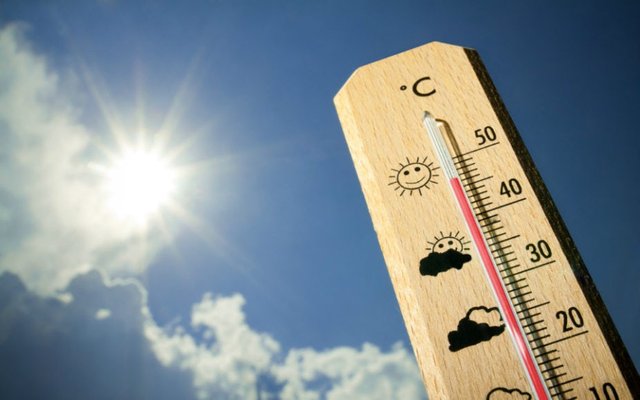40 degrees in Siberia and 30 degrees in Norway: Nearly planetary heat wave surprises experts
In Siberia there are temperatures that have never been recorded. The same is true for Canada, Ireland and the United Kingdom. In geographies where the heat is normal, temperatures do not stop breaking records.
Large heat waves have triggered alarms around the world for the past two months after temperatures soared in regions where this was not supposed to. One of the most extreme situations was recorded in northern Siberia, where last month was the hottest in more than a century, according to the Russian Meteorological Center.

In June, the average temperature of the entire region was eight degrees above normal, and intense heat was present exceptionally also in the first week of July. Extreme heat conditions have also been recorded in the last 60 days in cold regions such as Scandinavia, the United Kingdom, Ireland and Canada.
Experts agree that these climatic events fit into the scenarios predicted by the scientific community as a consequence of global warming. But more studies are needed to directly link a specific episode to climate change, they warn.
The heat wave in Siberia has caused serious problems for the region's inhabitants, according to the World Meteorological Organization (WMO). At different locations, temperatures were repeatedly reached at 40 degrees throughout the month of June. There were major fires, lack of electricity, failures in transportation and other public services and drowning numbers.
"The main effects were the melting of the sea ice in Laptev and the permafrost of the land surface and submerged", US meteorologist Nicholas Humphrey told El Pais newspaper.
This expert on extreme events and climate change published on July 2, in his blog, a post in which he explained with amazement what was happening in Siberia. "It's absolutely incredible, one of the most intense heat events I've ever seen in a northern latitude", he said.
Humphrey says that the disappearance of the ice volume in Siberia affected mainly the Russian coasts of the Arctic. Rapid sea heating can accelerate the emission of gases such as CO2 and methane from permafrost, says the expert. And these emissions can have serious consequences in other areas of the northern hemisphere, warns Humphrey. Negative changes also occur in the polar fleet, one of the main factors influencing the weather conditions in medium latitudes, he adds.
WMO said in its latest periodic report, dated July 19, that many of the extreme events have occurred in different parts of the world. The dominant note was the heat. Earlier this month, more than 50 people died due to a major heatwave in eastern Canada.
In California, there were several temperatures above 45 degrees during the first week of July, according to the National Weather Service. Heat waves have also affected other regions, such as Texas, and more similar situations are expected in the coming days.
Europe is no stranger to these events: several weeks of extreme and dry heat take place in the UK and Ireland. The last days were marked by record temperatures in Sweden and more than 50 major fires forced the government to seek international aid.
On July 17, *temperatures surpassed 30 degrees at locations in Norway and Finland, located above the Arctic Circle. A very hot summer in the early part of July shook the inhabitants of some Caucasus cities, such as Tbilisi (Georgia) and Yerevan (Armenia).
To the south there are also extreme records: in Quriya (Oman), on June 28 and during the 24 hours the minimum temperature was 42.6 degrees. In Ouargla (Algeria), on 5 July, 51.3 degrees were registered, probably the highest temperature ever recorded in the country, according to WMO. Many areas of northern Africa have suffered a heat wave between July 3 and 10.
In the southern hemisphere it is now winter, but the anomalies are not lacking. In Sydney and the surrounding area, the cold season is becoming particularly mild and will continue in August, according to the Australian Government's Cabinet of Meteorology.
In Japan, after heavy rains that killed at least 200 people, the last week has been characterized by an intense heat wave, with temperatures up to 39 degrees, which has already caused 14 victims.
Thanks for your time!
If you appreciate the work I´m doing:

Can I say as a Brit, we are generally enjoying this heat. I believe last summer was the wettest since records began. Every year some record gets broken, let us moan about the heat in peace
Ahaha, I realise that for some countries it can be good some heat, for others it can get annoying!
The main problem is that these temperatures are being caused by humans, climatic changes.
But what you gonna do? Really?
Not much to do about the current weather, what we need to do is prevent even more extreme temperature in the future.
How? I wanna know